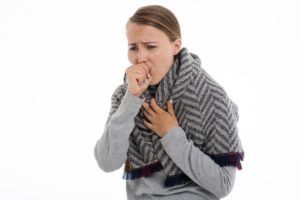Breathing, rib muscles (intercostals), belly muscles (abdominals) and the pelvic floor

BREATHING….we all do it, but are we efficient with our breathing and has it changed after infection/illness, such as covid-19??
What effects does illness such as Covid-19 have on our breathing?
- Any upper respiratory tract infection can lead to coughing. The purpose of this is to clear the additional mucous secretions that the body produces. Mucous traps dust particles and infection and coughing is an effective way to expel it from the body.
- If our sinuses or airways are narrowed through inflammation and/or infection we tend to mouth breathe, this can dry and further irritate the airways.
- Prolonged coughing episodes use the abdominal muscles and the intercostal muscles which sit between the ribs.
- Sometimes intense coughing can pinch nerves around this area and lead to referred sharp pain that tracks around the rib cage. It can also be sore on a deep breath in.
- Occasionally people can experience leakage with intense/prolonged coughing from if they have underlying pelvic floor weakness.
How are you breathing…..Look in the mirror, what do you see?
- Nose or mouth breathing?
- Check your shoulders – what are they doing (up/down on breathing?)
- Check your chest movement – what is it doing (outward movement or no movement?)
- Check your belly movement – what is happening during a breath (outward movement or no movement?)
- Ratio of breathing – (equal in/out or is one breath longer than the other?)
- Sighing/yawning/can’t catch a full breath?
At rest there are certain patterns we should adopt be good breathing patterns which use the muscles around the rib cage efficiently without overcompensating by using upper shoulder/accessory muscles.
If you are not sure about your breathing and you have recently been unwell or would like it assessed, contact us for a 30-minute assessment. We can check these areas of the breathing pattern and help you make changes that will improve the efficiency and ease of breathing.
Active cycle of breathing – this is a technique our Physiotherapists can teach you to help loosen and remove secretions off the chest. This will help reduce the time any infected mucous spends in the lung, as well as encourage better air flow into the lungs.
Postural Drainage – these are positions that our Physiotherapists can teach you to help encourage better drainage of secretions in the lungs if you are experiencing Covid-19 symptoms but are at home and would like additional help with mucous removal.
NB: To all the women and men’s health patients/new mum’s/menopausal women
Repeated coughing without a gentle engagement in the pelvic floor can increase the ‘intra abdominal pressure’ on the whole of the trunk. Think of squeezing a balloon in the middle; where does it bulge? (Upwards and downwards mostly!)
When we cough, unless we can provide some support to the trunk using the abdominal and pelvic floor muscles, the pressure we create for force mucous out of our lungs/throat/mouth will also push outwards and downwards on our organs and muscles, too.
If there is any underlying weakness, the pelvic floor may not be reactive enough to stop any leakage or urine. The same occurs with more intense loaded activity such as running and landing on a trampoline…but that’s another blog in itself!
Contact us for a 30-minute assessment and review of pelvic floor muscle engagement with/without cough technique to help prevent leakage.
#pelvicfloor #cough #respiratoryphysio #breathing #leakage #lungs
